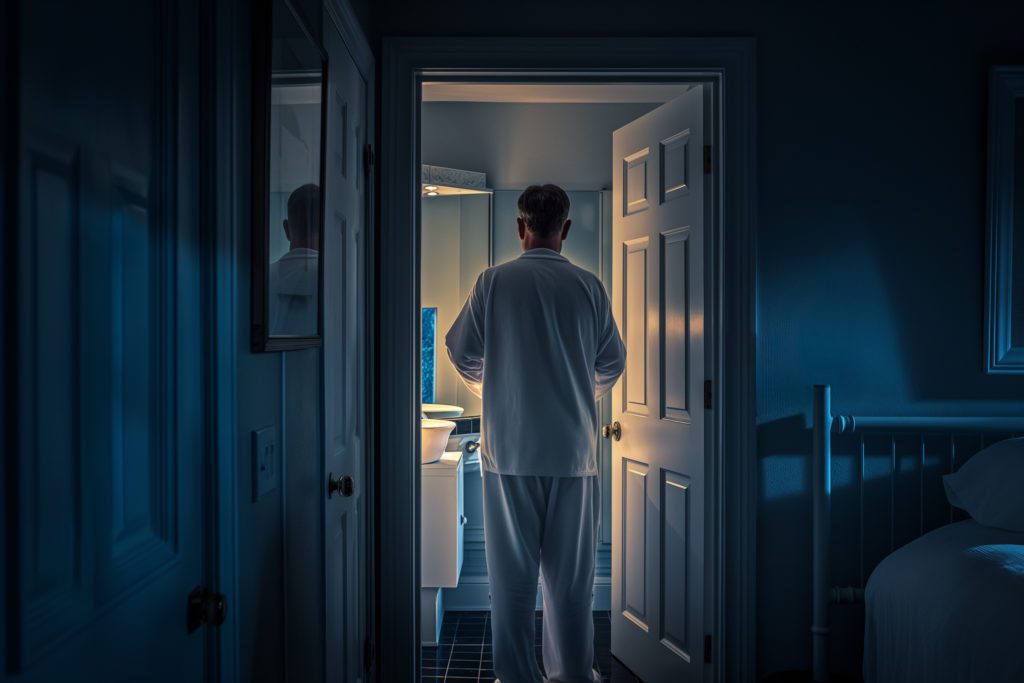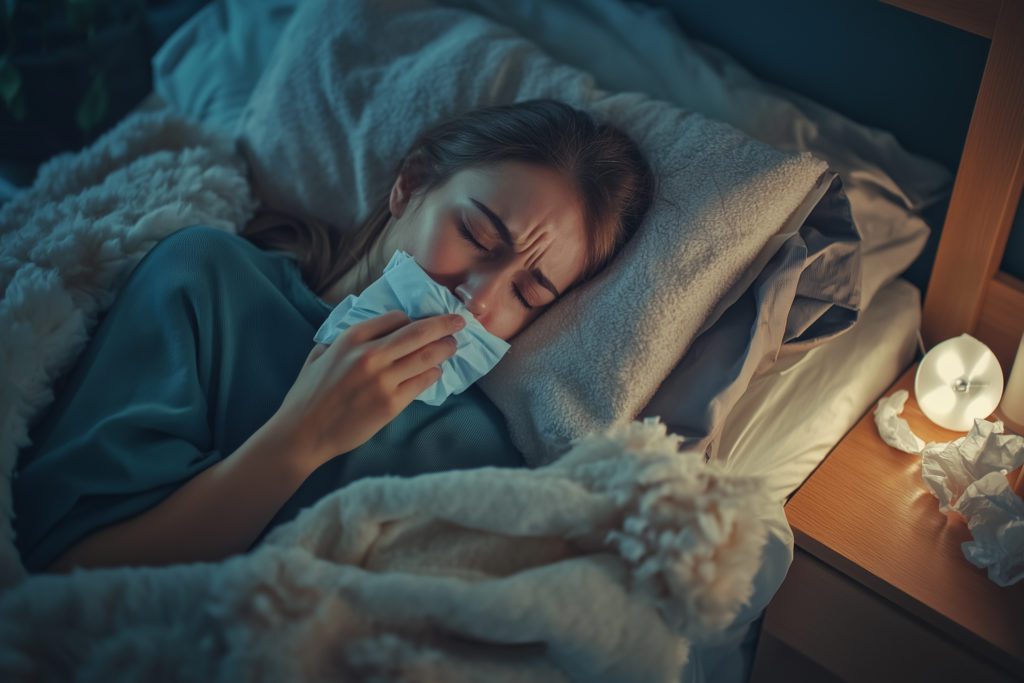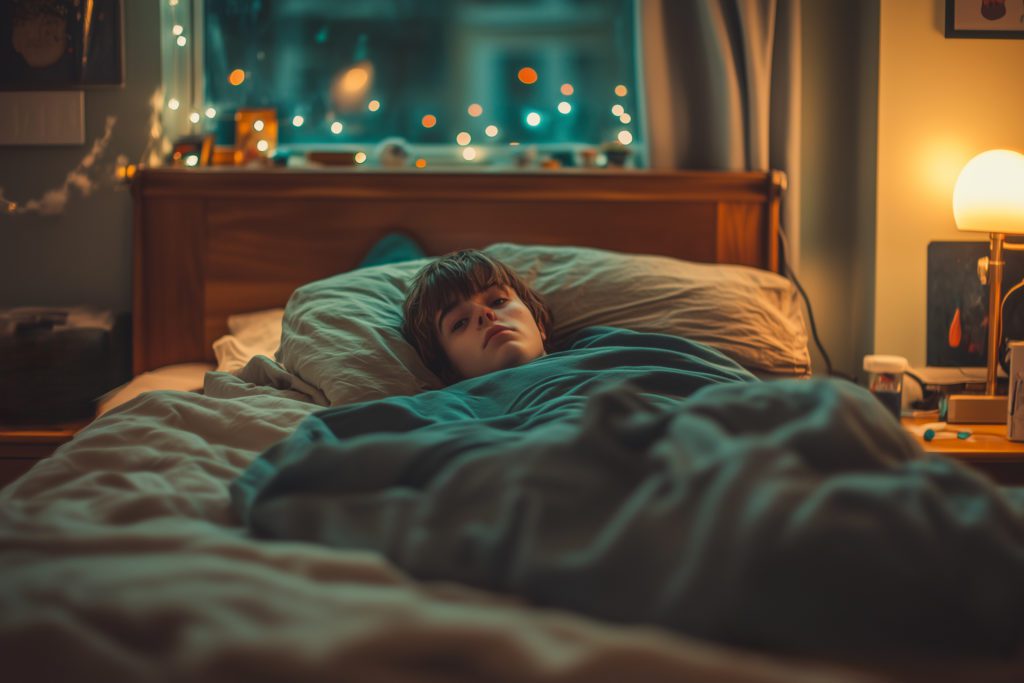
Sleep Hygiene and Mental Health: How Are They Connected?
Did you know that sleep and mental health are connected? Read more to discover how sleep impacts your moods, stress, and more!

Sleep hygiene is critical if you’re seeking to improve your overall health and energy levels. However, did you know that proper sleep hygiene can also be a significant influence on your mental health? It’s true! Sleep hygiene and mental health are connected, as the quality and quantity of your sleep can indicate your own mental health or your risk of developing certain mental health conditions. In this article, we’re going to explore this unique connection and what it means for you.
We’ll discuss how proper sleep hygiene can encourage better mood regulation, reduce stress, and even enhance your cognitive function. Additionally, we’ll also explore how proper sleep can lower your risk of mental health disorders and improve your overall health, including limiting behavioral challenges. Let’s explore the first way that sleep hygiene and mental health connect: through mood regulation.
Proper Sleep Hygiene Encourages Mood Regulation
Believe it or not, how you sleep and how much rest you get affect your ability to regulate your moods. Mood regulation is an integral part of mental health, and without proper sleep, you may struggle with it. In an article on sleep hygiene, researchers discovered that the amount of hours we sleep and the quality of this sleep provide us with health benefits, namely improving our moods (Source: Science Direct). Further research has even shown us that proper sleep hygiene can even reduce depressive moods.
A recent study on mood and anxiety as tied to sleep showed that students who follow a general sleep schedule and get adequate rest every single night report fewer depressive symptoms and moods. As you can see, proper sleep hygiene is tied to mental health because it helps us regulate our moods. Yet, quality sleep can also help us reduce the stress that we feel in our lives.
Quality Sleep Can Reduce Stress
Aside from the ability to help us with mood regulation, proper, quality sleep has also been tied to reductions in stress. If you face a lot of stress in your life, you might have noticed how it impacts your sleep, and vice versa. Stress and sleep are interrelated but critical to discuss in terms of our mental health. Studies have shown that when we’re stressed, we tend to encounter more disturbed sleep, and we struggle to feel rested (Source: Journal of Family Medicine and Primary Care). However, it also goes the other way.
It's true that poor sleep can actually lead to more stress and anxiety for us, leading to poorer sleep hygiene and even other health challenges. While this study was done on participants who were diagnosed with generalized anxiety disorder (GAD), it still shows how our sleep hygiene, if left unmanaged and poorer than usual, can lead to more mental stress for us as we attempt to go about our day-to-day lives. This is important for us to understand, especially for those of us who encounter a lot of stress in our lives!
Poor Sleep Hygiene Limits Cognitive Function
If you have ever had a poor night’s rest and had to get to work regardless, you probably have already realized that poor sleep quality and duration can limit your cognitive function. Mornings where you feel like you can’t function without coffee are proof of this, but there are also plenty of other studies and sources that we can cite that demonstrate this for you. One fascinating study was on elite athletes, who have to be both cognitively and physically ready to perform at a high level.
One International Journal of Sports Medicine article showed that a lack of sleep can make activities like decision-making and judgment for elite athletes even harder. If you’re watching a competition, this might manifest as a slower response time for swimmers or even slower sprint times in runners. Even if you are not an elite athlete, it’s true that our sleep impacts our cognition. That’s why it is so essential for us to prioritize our sleep and ensure that we are always well-rested!
Disturbed Sleep Can Increase the Risk of Mental Health Disorders
The more that you toss and turn or wake up overnight, the more likely you are to not only encounter health challenges but also increase your risk of developing mental health disorders. When considering the number of people around the world who have insomnia but also struggle with anxiety and depression, it’s clear to us all. There’s even recent research that has shown this to be true.
Researchers published an article a few years ago detailing how adolescents who struggle with poor sleep are actually at a higher risk for issues like depression, anxiety, and more (Source: Sage Journals). No matter if you are a teen or an adult, this information can empower you to make better decisions because better sleep hygiene is best for encouraging an overall improvement in your health—both physically and mentally.
Sleep Hygiene Improves Well-Being and Fewer Behavioral Challenges
It’s true: the better we sleep, the better we feel, and the more our health improves. This is even true for behavioral challenges that we might face. Adolescents who were studied for their sleep health and behavioral difficulties demonstrated that with proper sleep, they actually encountered fewer behavioral challenges. Studies like this show how our sleep is so much more than resting, but about supporting our overall health and well-being. So, if you want to experience better health outcomes and overcome behavioral issues in your life, it might be worth refining and focusing on improving your sleep.
Improve Your Sleep Hygiene Today
It doesn’t take much to improve your sleep hygiene, but it remains connected to our mental health. As we explored, sleep hygiene is directly connected to our mental health, influencing our mood regulation, stress levels, cognition, risk of mental health disorders, and even our overall well-being, including behavioral challenges. Now that you know the connection between sleep hygiene and mental health, how will you make changes to improve your overall health?
FAQ
Why do I feel more emotional after a bad night’s sleep?
Sleep helps regulate emotions, so when you’re sleep-deprived, your brain struggles to process feelings calmly. This can lead to mood swings, irritability, and even heightened anxiety or sadness.
Can improving sleep really help with stress and anxiety?
Yes! Quality sleep helps lower stress hormones like cortisol and improves your ability to cope with daily challenges. On the flip side, poor sleep can increase stress levels, making everything feel harder.
Can poor sleep increase my risk of depression?
Absolutely. Studies show that chronic sleep deprivation is linked to a higher risk of depression. In fact, insomnia is often one of the first signs of a developing mood disorder.
Can too much sleep also affect mental health?
Yes! While oversleeping isn’t talked about as much as sleep deprivation, it can lead to fatigue, low motivation, and worsened depression symptoms. The key is balance—getting 7-9 hours of quality sleep.
Why do I wake up feeling tired even after 8 hours of sleep?
Quality matters just as much as quantity. If your sleep is fragmented due to stress, blue light exposure, or inconsistent sleep habits, you might not be getting enough deep, restorative sleep.

Written by
Marie Soukup
Marie Soukup is a seasoned copywriter, editor, and Integrative Nutrition Health Coach with a certificate from the Institute of Integrative Nutrition (IIN). With years of experience working with brands across diverse industries, Marie is passionate about holistic health and crafting compelling content.
Download Pillow
Get help
Press & News
Legal
Connect
X (Twitter)
Company
Copyright © Neybox Digital Ltd.



